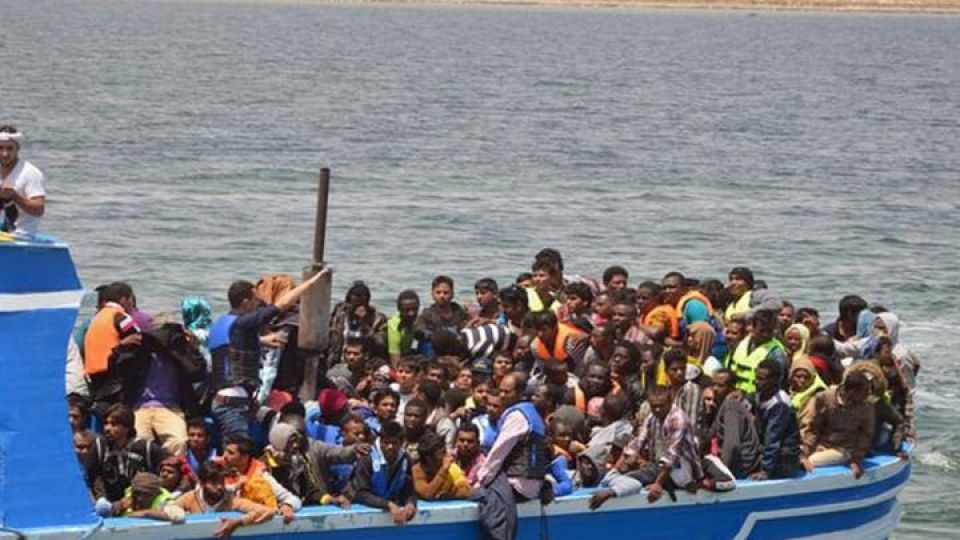June 26, 2023
ISLAMABAD – ON June 14, 2023, a fishing boat carrying more than 700 migrants — a majority of whom were Pakistanis — sank in the Ionian Sea, just off the coast of Greece. Only 104 passengers are believed to have survived. History is replete with similar examples of overburdened and unseaworthy vessels carrying migrants and refugees through these waters of Europe, many of them perishing before they reached their destinations.
After every such incident, the reaction of the international community has been the same: condolences, condemnation, and demands for accountability. Eventually, the outrage dwindles, and the victims are relegated to the footnotes of history as just another statistic.
Who is to blame for this senseless loss of life? From the human smugglers who exploit the desperation of people seeking to flee their countries of origin, to the selfishness and apathy of each of the states involved in these migrants’ journey — the victims have been failed at every stage in practically every way.
Many blame the Greek state for its failure to rescue a boat clearly in distress in its territorial waters. International law — specifically, the 1974 International Convention for the Safety of Life at Sea and the 1910 Unification of Certain Rules of Law with Respect to Assistance and Salvage at Sea — places clear obligations on vessels in the vicinity to come to the assistance of ships in distress. It appears that the rescue of this boat failed not because of the oft-cited excuses of a refusal to receive assistance, or lack of access, but due to deliberate, systemic delays and failures in Greece’s response protocols. This is not the first time Greece has been taken to task for its failures under international law. The state was brought before the European Court of Human Rights over a similar incident involving a fishing boat carrying Syrian, Palestinian and Afghan refugees. In that 2014 incident, the Greek coastguard, while attempting to tow the boat away from Greek waters and back to Turkish waters, caused it to capsize, resulting in the deaths of 11 people, including women and children. It is clear that Europe has very little appetite to help, or to claim responsibility for, migrants arriving at its shores in their attempt to escape from poverty, persecution and conflict at home.
Who is to blame for this senseless loss of life at sea?
The United Nations International Organisation for Migration has set transnational guidelines for states dealing with migrants in its Global Compact for Migration (2018). Most pertinently, the Global Compact asserts that the overarching guiding principles for state actions with regard to migrants should be to “ensure effective respect, protection and fulfilment of the human rights of all migrants, regardless of their migration status, across all stages of the migration cycle”. In addition, the Global Compact stresses the importance of “providing [the migrants] with care and assistance” and “strives to create conducive conditions that enable all migrants to enrich our societies through their human, economic and social capacities, and thus facilitate their contributions to sustainable development at the local, national, regional and global levels”.
Realistically, however, these are just guidelines — they are non-binding, even for member states. Unless the international community adopts these, or similar, guidelines in their legal systems and initiates implementation processes, they would be little more than what they are at the moment —empty promises and words.
Working backwards, however, it is unfair to place the entirety of the blame on states like Greece, expecting from them higher standards of human compassion and empathy than the states these people are fleeing from, or the facilitators that take advantage of their desperation to put them in such perilous circumstances in the first place. Pakistan is mourning its lost citizens, but perhaps the need of the hour is to urgently expedite efforts to mitigate the negative structural drivers that compel its people to risk life and limb in their flight from the country.
Perhaps, instead of hurriedly indicting a handful of people allegedly involved in human trafficking, we need to devise and institutionalise meaningful mechanisms under the Prevention of Trafficking in Persons Act, 2018, to prevent such instances in the future. Since Pakistan found itself, until very recently, on the ‘grey list’ of the Financial Action Task Force for its slow progress in complying with UN Security Council Resolutions relating to, among others, terror financing, money laundering and human trafficking, Pakistan’s Federal Investigation Agency has stepped up the operations of its anti-human trafficking and smuggling wing. Given the current surge in people from Pakistan exploring migration options, there is an immediate need to strengthen the existing framework of the FIA and to collate its workings through the Ministry of Foreign Affairs with international organisations working in similar capacities, to engage in transnational efforts to crack down on human smuggling and trafficking rings.
Pakistan needs to re-route its energies towards strengthening mechanisms for enforcing the fundamental human rights enshrined in our Constitution — such as the right to security of person, to dignity, to education, to employment, and the right not to be enslaved or forced into labour. Perhaps, instead of pointing fingers at others, it should direct its efforts at fulfilling its own international obligations under the International Covenant on Civil and Political Rights; the International Covenant on Economic, Social, and Cultural Rights; and the UN’s Sustainable Development Goals, focusing on serious legislative and policy reform geared towards guaranteeing economic stability, equitable employment opportunities and poverty alleviation for its citizens. The fact that hundreds of Pakistanis found the inhospitable seas more welcoming than their home country is a damning indictment of Pakistan’s failure to provide for its own.
Sikander Ahmed Shah is former legal adviser to Pakistan’s foreign ministry, and faculty, Lums Law School.
Sana Afraz is an international law expert.


